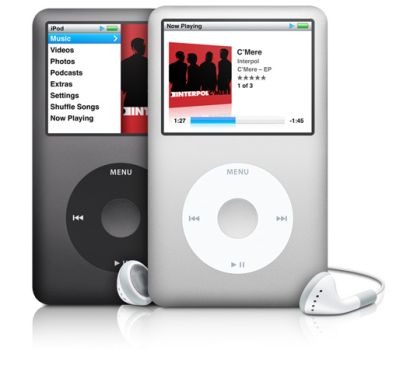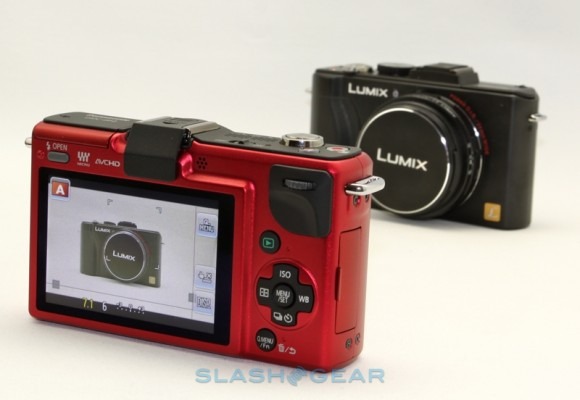Not Enough Devices? Here's Why You Need More
I love a good smartphone. I work for Samsung, and I carry a Galaxy S II that I've been "testing" for an extended period of time. I use just about every feature on it. I listen to music. I navigate. I talk and text. I take pictures and video. I've even read books on it. I'm not pushing my product, I can hardly name a smartphone on the market that cannot do these things. But I just read Jon Pilon's column on TheNextWeb.com about consolidating all of your gadgets. You know, because most people want to carry around only one gadget, instead of a half dozen. Right?
Well, I'm not so sure. Pilon makes some interesting suggestions about why you should ditch your laptop, your MP3 player, your GPS device, your home phone, digital camera, and eBook reader. I can't say I completely disagree. A good tablet can take the place of all of these things. However, there still might be a reason to stick with the multiple gadget plan.
Computer
Okay, Pilon's suggestion here is something of a cop-out. If you have a laptop, he suggests ditching it for a desktop and a tablet. I can definitely see his logic, but that's the exact opposite of what he's claiming to suggest. That's more gadgets, not less. Personally, I have both. Frankly, I have quite a few tablets, but that's part of my job. I've traveled on business with just tablets, no laptop, and it didn't work out. For short, fun trips, the tablet can suffice, but I still need the professional power and variety of input methods available on a laptop.
Pilon makes a good point about a desktop acting as a media server. My next PC will probably be an HTPC or mini computer with a ton of storage and a dearth of processing power. But I'll still need my laptop. I'll just keep it for an extra few years.
MP3 Player
[aquote]Sure, you'll lose the ability to be interrupted by phone calls, but, um, that might not be such a bad thing.[/aquote]
This seems like the most controversial suggestion, right? Keep your old MP3 player? Well, yes, actually. I use my phone for music all the time. For streaming services like Spotify and Rdio, you need a connected device. But sometimes I want something smaller. Much, much smaller. Something tiny, with a clip or a necklace, that I can wear and forget. It won't fall out of my pocket. I won't snag the cord on the arms of the elliptical machine. If I drop it, I won't worry too much. For working out or walking around, an MP3 player might be best. Sure, you'll lose the ability to be interrupted by phone calls, but, um, that might not be such a bad thing.

Sometimes, I also want something bigger. I have a moderately-sized music collection; just under 90GB worth of tunes. A device like an iPod classic, with its 120GB hard drive, is a perfect solution for me when I'm on long haul trips. Like, a month away. It also makes a handy backup device for my media. Oh, and I can use that extra 30GB of storage as a spare hard drive for transferring files. I don't usually need every song I own with me at all times, but if the urge strikes to be extra prepared with just the right tune, a larger device with a small, spinning hard drive still offers the best storage to cost ratio.
GPS
Location-based services on cell phones and connected devices are the next big thing. But I could still see a good argument for keeping a dedicated GPS device in your car. For one thing, there is room for a much larger, more powerful antenna. An antenna that is always exposed to the sky, instead of stuffed in your pocket or your bag.
Most good mapping apps today let you download and cache your maps so that navigation works even when you're offline. But with a standalone GPS, at least you know you'll never need a connection. Plus, a built-in GPS device doesn't hog the power socket in your car, so you can charge your phone and use GPS.
If you need to make a call while driving, and I advise using a hands free device, of course, it is much easier when you are not also using your phone to navigate. I can't tell you how many times I've been talking to one of the chattier people in my life and missed an important turn. Having a dedicated GPS unit as a back-up, at least, cuts a half a distraction from your driving. Just make sure to be safe, and tell your mother you'll call her back when you arrive.
Home Phone
I gave up my home phone for a long time, and I lived just fine without it. But there are benefits to a home phone that you cannot match with a cell phone. For one thing, you always know where to find a home phone. In fact, you always know where to find a few home phones, if you put one in every room. Sure, you can lose the cordless, but they all come with beeping homing devices these days, so they are easier to find. If you lose your cell phone, you can call it to hear it ring, but only if you have another phone on you.
[aquote]I miss being able to call an apartment where a few friends live, and talking to whoever picks up the phone first.[/aquote]
Your home phone will not run out of battery, at least if you have a wired backup. I always do. In case of blackouts, the phone service still usually works (unless, of course, you have a VoIP line). But even when the power is on, I've still made the mistake of forgetting to charge my phone for a couple days, and it's dead when I need it most. If somebody were trying to call, I would have missed them if I did not have a home number.
I also like the idea that a home phone number is a way to call a place, and not a person. When you call a cell phone, you are calling wherever that phone, and hopefully its owner, happen to be at the time. This just feels limiting. I miss being able to call an apartment where a few friends live, and talking to whoever picks up the phone first. I miss talking to my friends' parents for a few minutes, just some catching up and small talk, before getting through. There is no device more personal than a cell phone, and yet, skipping the home phone may remove some significant interpersonal relationships.
Digital Camera
Cameras on cell phones today are amazing. You can truly leave the point and shoot camera at home for most applications. However, there are still limitations in the technology. For 90% of your shooting, these may not matter, but if you are serious about image quality and you want shots that are future-proof, there are a few things to consider.
There is no zoom on your phone. I've seen a couple phones with optical zoom, but most rely on digital. Digital zoom is the same as cropping. You don't actually get closer to your subject, you just see less of your photo. Optical zoom actually magnifies light to get a closer image.

Standalone cameras have larger sensors. While the high-megapixel sensors on camera phones means you'll see an undeniably larger and perhaps sharper image, the true measure of image quality is sensor ratio. That is, the number of pixels per inch of sensor real estate. Larger pixels are better. Standalone pictures also have more features than most camera phones. Don't get me wrong, my phone can handle face detection, panorama stitching, and even some macro work with aplomb. But you'll find more nuanced controls, like aperture control and better shutter speed selection, on a dedicated camera.
Besides, the same battery argument applies to both GPS devices and camera. While your phone may make a great camera for most shots, if you're spending a day taking constant pictures, you will drain your battery much faster. Better to use a point and shoot, and keep your phone charged longer. Or even better, use a DSLR, which sips battery power and can last for hundreds of shots on a single charge.
eBook Reader
I don't currently own an eBook reader, but it is high on my list. I'm currently using my tablet for eBooks. Happily, books I buy for my tablet are compatible with the eBook reader I'll be buying. And, I don't see myself giving up reading on my tablet or, occasionally, my smartphone. I have a digital version of a field guide for my Nikon DSLR, and it's great to have the complete manual with pictures available on all my portable, connected devices.
[aquote]For reading, E-Ink is better. It's sharper.[/aquote]
So why am I getting an eBook reader? Easy. E-Ink. For reading, E-Ink is better. It's sharper. It has better contrast than even the best sAMOLED+ screens on the market, at least for pure black and white. Even more important, though, I can read it on the beach. I would not take my tablet to the beach. Between the sun and the sand, a tablet is not a good match for beach use. But a smaller e-reader, with its e-ink screen, is a fine option, if you're careful around the natural elements.
Plus, there is again the battery issue. EBook reading probably drains less battery than any other task you'll perform on a smartphone or tablet, aside from music listening, perhaps. But even so, a dedicated eBook reader can last a month on a single charge, if not longer. I will keep using my tablet to read, in the dark and out in the field. But when I'm reading for the long haul, I can't wait to get my hands on a real e-ink device.
So, there you have it. Buy more gadgets. Keep your cell phone, and use if for all of these tasks. Your phone does a fine job at any of these, and technology is improving quickly, so it will keep getting better. But there are plenty of benefits to finding the right device for the job, and carrying around so many devices that you're sure to have enough technology on hand.
